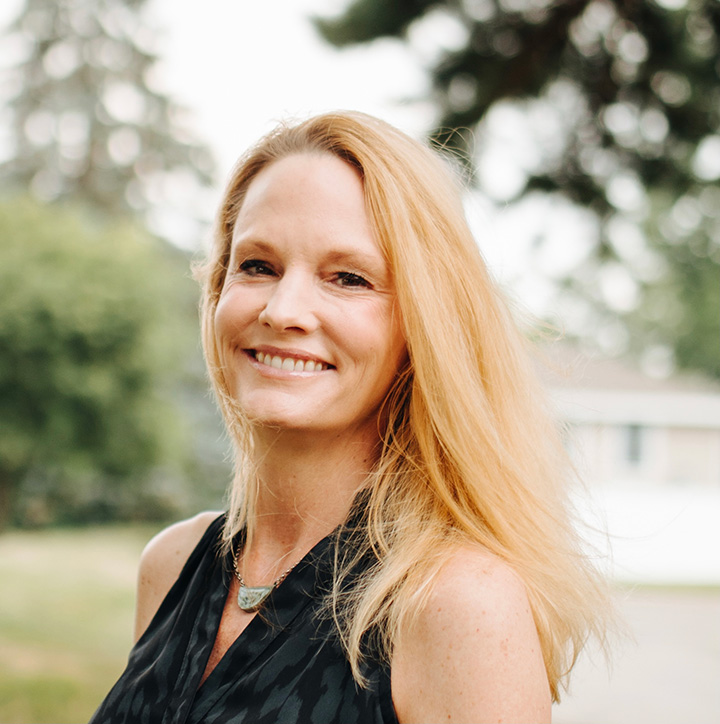Susan’s collection of essays, Guess What’s Different, will be out in May of 2022 by Malarkey Books. She is an assistant non-fiction editor at Pithead Chapel and Red Fez. She has been nominated for a Pushcart, Best of the Net, and two Best Microfictions. She holds an MA in Education and an MFA from Hamline University in St. Paul, MN. You can find her work at susantriemert.com.
----- Interview by Angela Mackintosh
WOW: Thank you, Susan, for taking the time to chat with us today, and congratulations on your winning essay, "How to Activate Your Ancestry DNA Kit"! Besides your essay being an incredible story, the format works well to drive the narrative of finding your half brother through a DNA test and forming a relationship with him. What was the initial spark to writing this piece?
Susan: Because our biological grandmother had been adopted, my sister took a DNA test as a way to see if we were Irish. We were not expecting to find a sibling! The first version of this essay was over 40 pages, and it was unwieldy. When I thought of turning it into a flash, a hermit crab essay seemed the most accessible avenue.
WOW: You must have quite a story at 40 pages, and I'm sure this is only a slice. The second person POV works well with borrowed form (hermit crab) essays, and in particular, your narrative fits tightly with the instructions, even using the same language in some places. Did you find that conforming to the structure allowed for more creativity, helping to pull certain threads from your relationship in an interesting way? I'd love to hear more about your process.
Susan: Because I already had over 40 pages on this topic and once I’d decided on the form, the current version of this essay was easy to write. Modeling it after the short instructions helped me rein in the numerous tangents that I had. It was a fun challenge to shape this essay to fit the constraints of the instructions.
WOW: "Numerous tangents"—I know those too well! I was surprised by the shift that happens near the end of the essay, when your half brother says he no longer wants you in his life. The pacing is perfect and that shift comes right where a climax should be, ratcheting up the tension. You must've studied some hermit crab essays. What are some of your favorites?
Susan: I have many favorites hermit crab pieces, both in CNF and fiction. Here are just a few:
Kathy Fish’s “Collective Nouns for Humans in the Wild,” Jill Talbot’s “The Professor of Longing,” Marilyn Duarte’s “A Father’s Legacy,” K.B. Carle’s “Vagabond Mannequin,” and Cheryl Pappas’ “Homework.” Most of these women also teach writing, so please check out their websites.
WOW: Those are all excellent examples, and Jill Talbot's essay is one of my favorites. I will have to check out the rest. You also mentioned K.B. Carle, and we interviewed her here at WOW about her work as associate editor at Fractured Lit.
You're an assistant nonfiction editor at two of my favorite journals: Pithead Chapel and Red Fez. Red Fez actually gave me my first Pushcart Prize and Best of Net nominations, so they hold a special place in my heart. In what ways has editing for journals helped you when it comes to submitting your own work?
Susan: Oh, that is wonderful to hear. Editing has helped me to not take rejections personally. We have to turn down amazing writing all of the time. Also, I think it is really important to become familiar with the places you are submitting. For instance, I selected this essay because it seemed to fit the types of essays that were being chosen at WOW.
WOW: Excellent advice, and you are right; we appreciate unique form. In your bio, you mentioned that your essay collection, Guess What's Different, comes out in May 2022. Congratulations! I love your title. How long did you spend working on your collection, and is there a connecting theme, perhaps related to your title?
Susan: Thank you! I have spent seven years on this collection. I needed to compile enough material, and I am a slow writer. The themes are adoption, grief, and my mental health journey. “Guess What’s Different” is also the title of an essay that was published by Red Fez before I came on board and was recently nominated for a Best of the Net 2022.
WOW: That's wonderful news about your Best of the Net nom! Your collection sounds like one I'd love to read. Book promotion is so tricky during COVID times, and it seems authors have to get creative. Do you have plans for in-person readings, online book tours, or other events for Guess What's Different?
Susan: I hope to do at least one in-person reading here in St. Paul, Minnesota. I have connected with other writers on Twitter about doing online readings and have met wonderful women this way. I so appreciate this interview as a way to promote my writing as well. Thank you!
WOW: It's our pleasure! And please check back in when your collection comes out. Finally, what's your favorite writing tip or piece of advice?
Susan: Volunteer to be a reader or editor for a journal. You will learn so much from the submitted writers and from the comments of fellow editors. I cannot believe how smart and inspiring the people I edit with are! Thanks again for this interview.
WOW: Great advice. Thank you, Susan, for spending time with us today, and congratulations on writing a powerful, wonderfully creative, brave essay that touched all of our hearts.






1 comments:
Love your essay! And what an interesting form. Off to check out your examples. Congratulations on the publication of your book.
Post a Comment